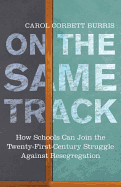 Bush, Jonathan (Author), Baker, Stephen (With) (Get this book)
Bush, Jonathan (Author), Baker, Stephen (With) (Get this book) With the assistance of former BusinessWeek senior writer Baker, Bush, nephew of George H.W., offers an alternative to Obamacare based on his own experiences as CEO of athenahealth, Inc. Despite the author's family connections, this is by no means a vitriolic attack on the Affordable Care Act but rather an appraisal of why, in his opinion, it is not up to the necessary task of reforming the American health care system, since escalating costs (whether borne by individuals or government) are not sufficiently addressed. Likely to find its way onto the Republican platform but worthy of serious consideration on its own merits.--Kirkus






